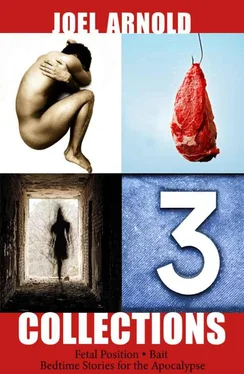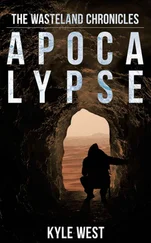Around the Griffins’ place, the wind shifts the snow, revealing fading patches of pink. The glimpses are brief, and the snow keeps coming. Weather forecast says the snow is here to stay. Says it will keep coming down for another couple days, and the cold will continue through the rest of the winter.
No one will go look there. No one wants to know.
Spring is a long time coming.
The Griffin residence sits two houses in from the north end of our street. Children must pass it on the way to school unless they take the long way around the block, which some choose to do — even when the temperature plummets below zero.
Johnny Griffin, thirteen, is suspended from school for possession of marijuana. I’ve seen his father, J.T., smoke weed from the shadows of their garage, the odor carried toward our house over the summer breeze. How long will it be before the Griffin boy offers it to the kids on our street? Has he already? Darren, our twelve-year old, swears he’s never touched the stuff.
The mother, Juanita Griffin, is a drunk, and her cussing fouls the air. J.T. and Johnny work on two old Harleys into the early morning, the revving engines cutting through the darkness, while thick, gray exhaust spills from the garage.
Their lawn remains unkempt throughout summer, dandelions and pigweed tangled amidst under-watered grass. The shell of their house needs fresh paint, the windows filthy.
I know Johnny Griffin can’t help the way he is. How can a child with parents like that have a chance? But does that mean our children have to put up with him? Should we give them extra lunch money so that after Johnny steals it, they’ll still have enough to eat with? We’ve tried talking to J.T. and Juanita, but they laugh, tell us kids will be kids. And then they turn mean and tell us to mind our business.
Aren’t our children our business?
Two years ago when the Griffins moved onto our street, Lydia and I brought a sheet cake and bottle of wine over and introduced ourselves. They looked surprised — a pair of rabbits caught in headlights. Juanita at least thanked us between drags on a cigarette, but J.T. said, “I’m more of a beer guy.” Later, we invited them over for Thanksgiving, but J.T. refused without so much as a thank you, without so much as a smile or handshake. I felt awkward standing in his doorway.
“Anything else you want?” he asked.
“No. That’s all.”
He shut the door.
“Johnny Griffin’s been harassing Brittany.”
The recently widowed Jill Bryant has called a meeting. Most of our neighbors are there, except the Griffins. “He pushed her into the grass, rubbed her face in the dirt because she refused to kiss him. She’s only eleven . I don’t want my daughter putting up with that.” She looks at each of us. “What’s happened to this neighborhood?”
She serves coffee and hot apple cider, thick sliced pumpkin bread and cherry chip cake. There are caramel apples for the kids gathered around a Disney movie in the upstairs den.
She invites me and three others to the basement. We huddle around a card table. I used to play poker with her husband here before he was hit by a drunk driver.
“I want to do something about those Griffins,” Ms. Bryant says.
Bill Swarthout’s got a pair of five-year old identical twin girls and says, “You can’t just ignore a cancer like that. Let ’em go on the way they are, and next thing you know, you’re no longer you. No, what you gotta do to cancer is burn the fucker off.”
There is little eye contact here in Ms. Bryant’s basement. It’s like the lighting is too harsh, and everyone has to look at the floor to avoid damaging their eyes.
Finally Todd Kaufmann — husband of Katrina, father of eight-year old Ellen — puts forth an idea that we’ve all thought of before, but were too afraid to say out loud.
“There’s one thing to do,” he says. “One thing that’ll return this place to normalcy.”
We listen. We grow in turn sickened and excited by his words. But in the end, we agree with him. Damn it, we agree.
Here’s what I want; a peaceful, quiet place to live and raise my son. I don’t want the bad influences in this world to touch him. Is that so much to ask? I want to sit on our front step, look up and down the street and know that all is right with our little corner of the world. People mowing their lawns, parents pushing kids in strollers, playing catch, shooting baskets. Barbeques, walking dogs, dressing up for church, eating dinner at a table, not in front of the TV like I’ve seen the Griffins do. What kind of values does a family like that have?
I know tolerance is important. We have our differences. But at the same time, we have only one life to live. One life to enjoy, to do and be the best we can. So should we be so tolerant as to let the evil out there affect and change our lives? To the point where our wants and desires become compromised?
We can tiptoe around evil, swerve out of its way when it comes at us.
Or we can eliminate it. Take control of our lives, our destinies. Sometimes you have to do something unpleasant to make things right.
Last week, Darren comes home from school, asking if he can sleep over at Johnny Griffins’. At first I think he’s joking, but my smile soon fades. “Isn’t he the same boy who takes your lunch money? Isn’t he the same boy who chases you on your way to school, who hides in a tree and jumps on top of you when you pass beneath?”
“We’re friends now,” Darren says.
“How so?”
He looks away, his cheeks turning pink. “We got in a fight yesterday.”
I run my fingers through his scalp, feel for abrasions. “Why didn’t you tell me? Did he hurt you?”
“I’m okay. I clocked him pretty good.” He looks up at me and grins. “Knocked him on his back. Then said I was sorry, but I was tired of him picking on me and my friends all the time. And you know what? He says he wants to be my friend. Says he was sorry, and that he was mad at us because he thought we made fun of him behind his back. Which we did. But he wants to be friends now, and wants me to sleep over.”
Emotions swirl through me. Pride at my son’s actions, but anger at Johnny Griffin. This is what it’s come to now; Johnny pulling out all the stops to corrupt my son. He’s learned that the best way to influence someone is to pretend you’re a friend, and just when they’re most vulnerable—
“No,” I say. “Absolutely not.”
“But Dad, I thought—”
“I’m sorry, but I don’t want you with that boy.”
Darren sighs. He looks up at me and shrugs. “But he seems so lonely.”
“You’re a good kid. You’re kind, and you look for the good in people. Those are admirable qualities, Darren, but you’re also naïve. I don’t want you hanging out with Johnny Griffin. End of story.”
We gather a few more times around the card table; Bill Swarthout, Jill Bryant, Todd Kaufmann and me. We discuss things that shouldn’t be discussed, but feel it’s our duty to do so. Duty to our families. Our neighborhood.
The plan we finally agree on is Bills’.
“Members of firing squads,” he says quietly, talking to the table, “used to be given blanks. Only a few had live ammunition. This way, none of them knew who fired the fatal shot.” He raises his eyes and looks at us in turn, and each of us, with only the slightest movement, nods acquiescence.
Our plan will take place on Halloween night, when it won’t be unusual for disguised figures to wander the neighborhood after dark. It’s the only night, really, when our plan will work.
I’ve been assigned only one task until that time; buy a costume. I find a grim reaper outfit. It comes with a plastic scythe, which I won’t need come Halloween night.
Читать дальше












